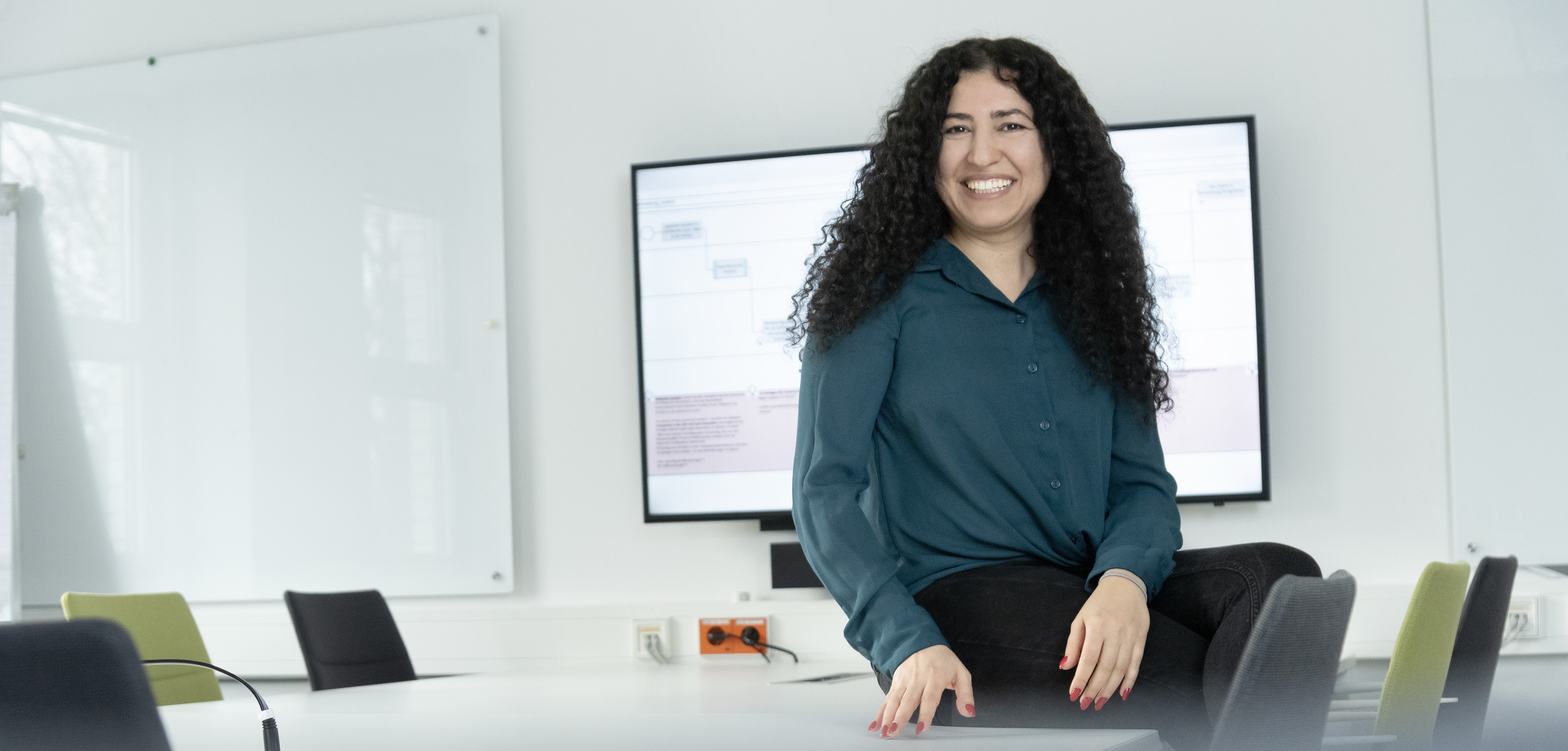
Sibel Can
Process manager in the Department of Central Services

Why did you choose to focus on this particular specialist field in your career?
I enjoy uncovering untapped potential and I want to encourage efforts to find new and better possibilities using the potential that already exists. I also really like breaking down “seemingly unsolvable” problems so that, in the end, all you can see is the solution. Every problem contains its own solution — if you approach it with discipline, focus and patience. My academic and professional experience has shown me that a lot of potential in companies is left unutilized. I’ve repeatedly found myself, on my own initiative, using process management tools and methods to create a better understanding of the potential available. Process management provides clarity. I identify very well with a process-based way of thinking and working, and I’ve incorporated systems and standards into my day-to-day life to make certain things easier for me.
What aspect of your work excites you?
Making process work solution-based and sustainable excites me.
By analyzing and documenting the processes just once, you create a sustainable basis that you can continue to benefit from for decades. It’s a lot of work at the start, but once the processes are documented in black and white, you can keep building on them. It’s obviously easier to adapt things than to tackle them completely from scratch. As well as that, I also find it fascinating that process work converts implicit knowledge into explicit knowledge — making the knowledge available to everyone for the long term.
Which achievement at Fraunhofer ITEM do you think of with particular fondness?
I’m the first process manager for the commercial and HR sections of Fraunhofer ITEM, so I had a kind of blank slate when I arrived here. I had a very interesting start because SAP needed to be introduced across Fraunhofer, which was a major challenge. To avoid the potential process gaps that could arise with the introduction of a new system or develop possible workarounds with the individual teams, it was very important to be familiar with our own processes, underlying conditions and specifications. Together with the individual teams, we delved into the processes in depth to uncover potential and record the procedures in a transparent way. Even though the SAP launch was challenging and implementing it still is to some extent, as an SAP team at Fraunhofer ITEM we were able to avoid major mistakes thanks to the process work, and were functioning very quickly after SAP went live. I look back with fondness at how open my colleagues on the teams were and at the constructive cooperation at every level, particularly while SAP was being introduced, and I’m grateful that I was part of such an extensive project.
What have you discovered recently?
Recently, I discovered the “OPEN HAUS: Schauspielhaus foyer” project. The foyer of the Hannover Schauspielhaus opens its doors during the day and becomes a place for everybody to visit, be productive or just relax, whether alone or as a collective. It’s a really comfortable set-up, with armchairs, small tables and a very good selection of books.
What’s your most cherished illusion?
That pets understand us when we talk to them. I think they pick up more than we think.
How do you cope with hard times?
I’m usually well prepared and I remind myself that it’s a phase. I stay positive and on the ball. There’s always a way out. You just have to find it. Life has its highs and lows. Hard times are part of that.
What does a successful day look like to you?
Physical activity, ideally outdoors with the sun shining, and maybe music too — that’s definitely part of a successful day.
 Fraunhofer Institute for Toxicology and Experimental Medicine
Fraunhofer Institute for Toxicology and Experimental Medicine